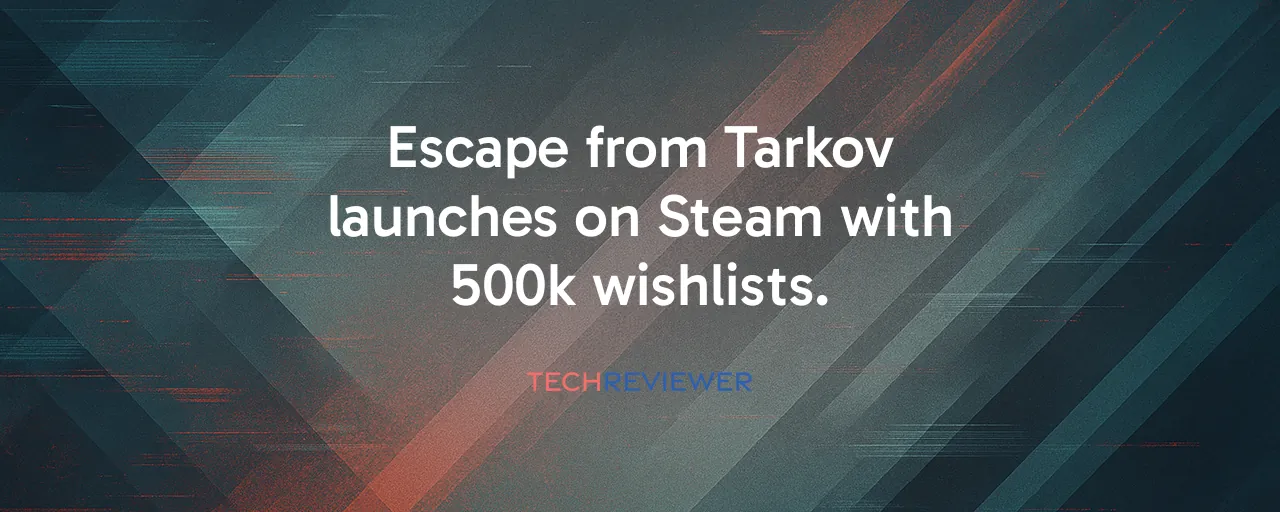A Milestone Moment for a Hardcore Icon
Escape from Tarkov has been a juggernaut in the extraction shooter world for nearly a decade, captivating players with its brutal realism and high-stakes raids. Now, with its November 15, 2025, version 1.0 release looming, the game's leap to Steam has sent shockwaves through the gaming community. Battlestate Games announced on October 15 that Tarkov has racked up over 500,000 wishlists on Valve's platform, a testament to its enduring appeal. This milestone marks the first time the game will break free from Battlestate's proprietary launcher, a move that promises broader reach but comes with a catch that's left some fans fuming.
For years, Tarkov has thrived on its niche, unforgiving design, where every bullet's trajectory and every injury's consequence feels painfully real. With approximately 5 million registered accounts, the game has seen concurrent player counts spike above 150,000 during wipe events, speaking to a dedicated fanbase. The Steam launch, however, isn't just about new players discovering Tarkov's tense raids. It's a pivotal moment that could redefine how the game balances its hardcore roots with the demands of a wider audience, all while navigating a growing wave of competitors.
The Repurchase Dilemma Splits the Community
The excitement of Tarkov hitting Steam comes with a bitter pill for long-time players. If you own the game through Battlestate's launcher, you'll need to buy it again to play via Steam. This decision has sparked heated debates, especially among those who shelled out up to 250 dollars for premium editions like Edge of Darkness. While account linking ensures progress carries over, the requirement to repurchase feels like a slap to loyal fans who've supported the game through eight years of early access.
Compare this to Gray Zone Warfare, a rival extraction shooter that launched directly on Steam in early access, attracting over 1 million monthly players with a more transparent roadmap and no repurchase drama. Battlestate's approach contrasts sharply, echoing their April 2024 Unheard Edition fiasco, where a 250-dollar package with exclusive features led to boycotts and an apology from COO Nikita Buyanov. The lesson? Misjudge your community's trust, and the backlash can be fierce. Yet, Battlestate seems to be betting that Steam's infrastructure, including achievements, refunds, and social features, will justify the cost for many.
Steam's Double-Edged Sword
Steam's platform brings undeniable perks. New players get easier access, verified reviews, and a refund policy that lets you return the game within two hours of playtime if bought within 14 days. For content creators, Steam's integration simplifies streaming and community building. But there's a flip side. The dual-launcher setup, requiring Battlestate's proprietary launcher even for Steam users, undercuts the seamless experience players expect. Add to that the risk of refunds flooding in if Tarkov's notorious learning curve or technical hiccups, such as stuttering or server crashes, frustrate newcomers.
Historical data offers a glimpse of what's at stake. Games with over 500,000 Steam wishlists often see 19 percent conversion to sales on day one, potentially netting Tarkov 95,000 sales in its first week. High-profile launches like Black Myth Wukong, which hit 290 percent conversion, show what hype can do. But if Tarkov's 1.0 release stumbles, Steam's refund policy could amplify the fallout, especially with competitors like Arc Raiders and Bungie's Marathon reboot waiting in the wings.
Pushing the Genre's Technical Boundaries
Tarkov's influence on extraction shooters is undeniable, thanks to its technical wizardry. Its ballistics system, with no hitscan nonsense, tracks every bullet's velocity and penetration. The health system, dividing the body into seven zones with unique injuries, adds brutal realism. Then there's the grid-based inventory, where every item's size and weight tweaks your speed and stamina. These systems, paired with advanced AI that flanks and suppresses, have set a high bar that rivals struggle to match.
Yet, technical brilliance comes with baggage. Persistent stuttering, memory leaks, and server woes during peak times have plagued Tarkov for years. The August 2025 update syncing Tarkov Arena with the main game's PvE mode showed off Battlestate's backend prowess, but the Steam launch will test their servers like never before. If the 1.0 release delivers promised features, such as story quests, new traders, and a PMC karma system, without smoothing out these kinks, players might not stick around, no matter how groundbreaking the mechanics.
A Genre at a Crossroads
Tarkov's Steam move comes as the extraction shooter genre hits a fever pitch. The market, projected to help drive the FPS segment to 7.86 billion dollars by 2034, is crowded with contenders. Gray Zone Warfare's 42-square-kilometer map and cross-platform plans contrast with Tarkov's PC-only stance. Bungie's Marathon reboot and Embark Studios' Arc Raiders are poised to steal attention with more accessible designs. Tarkov's hardcore ethos, defined by permadeath, no matchmaking, and regular wipes, sets it apart but risks alienating newcomers drawn by Steam's visibility.
The bigger picture is about digital ownership. Battlestate's repurchase demand highlights a thorny issue: digital games are licenses, not products, giving developers leeway to shift terms. When Grinding Gear Games gave Path of Exile 2 players Steam keys, or Bethesda offered free Steam copies after closing its launcher, they set a precedent Tarkov's ignoring. Consumer advocates argue this erodes trust, especially in regions like the EU with stronger digital protections. As the industry evolves, Tarkov's choices could spark wider debates about what players deserve from their purchases.
